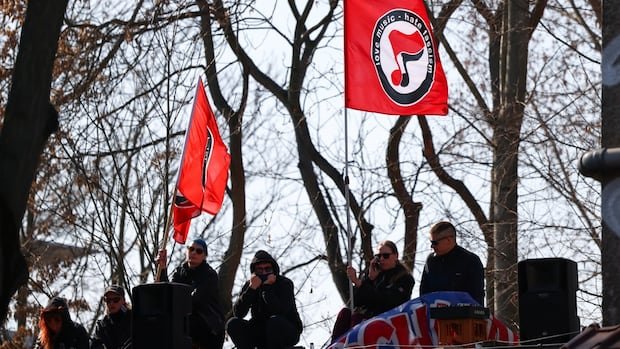U.S. President Donald Trump issued an executive order on Monday labeling the antifa movement as a “terrorist organization,” according to the White House. This action followed the assassination of conservative activist Charlie Kirk on September 10 while he was speaking at a college campus in Utah. A 22-year-old student from a technical college has been accused of Kirk’s murder.
While investigators are still determining the motive behind the killing and have not established any group involvement by the suspect, the Trump administration is using the incident to renew efforts to target left-wing organizations perceived as opposed to conservative ideologies.
Antifa, which stands for anti-fascist, is described by the Anti-Defamation League as a decentralized and leaderless movement consisting of various groups, networks, and individuals. The organization notes that although some individuals claiming affiliation with antifa engage in violent or vandalistic behavior at rallies, this is not representative of the entire movement.
In a 370-word executive order, President Trump directs all relevant government departments and agencies to investigate and dismantle any illegal activities carried out by antifa or individuals supporting such actions. The order alleges that individuals associated with antifa collaborate with other entities to promote political violence and stifle lawful political expression.
While federal law enforcement already monitors violent activities linked to hate groups and ideological movements, the U.S. government does not typically designate domestic groups as terrorist organizations due to constitutional protections.
Critics have raised concerns that the administration’s actions could be interpreted as an assault on free speech and critics of the Republican president. The FBI’s Counterterrorism and Counterintelligence Divisions are expected to investigate financial sources, including foreign funding, and identify the leadership structure of antifa. Surveillance and investigative operations by the FBI are subject to restrictions when targeting U.S. citizens.
The administration’s focus extends to identifying foreign funding influencing U.S. politics and linking it to international bank accounts. The ability to subpoena banks and scrutinize financial transactions, both domestic and foreign, is part of the authority granted by the antifa designation, according to a White House source.
While the specific targets of the investigation are unclear, previous assessments by political violence experts and law enforcement have indicated that far-right attacks are the primary source of domestic violent extremism. Despite this, Trump administration officials have highlighted left-wing groups as the principal instigators of political violence in their statements following Kirk’s death.
Legal experts have expressed doubts regarding the legality and constitutionality of designating domestic groups as terrorists, citing potential challenges in implementation and concerns about infringing on free speech, as holding an ideological belief is not typically considered a criminal offense under U.S. law.

